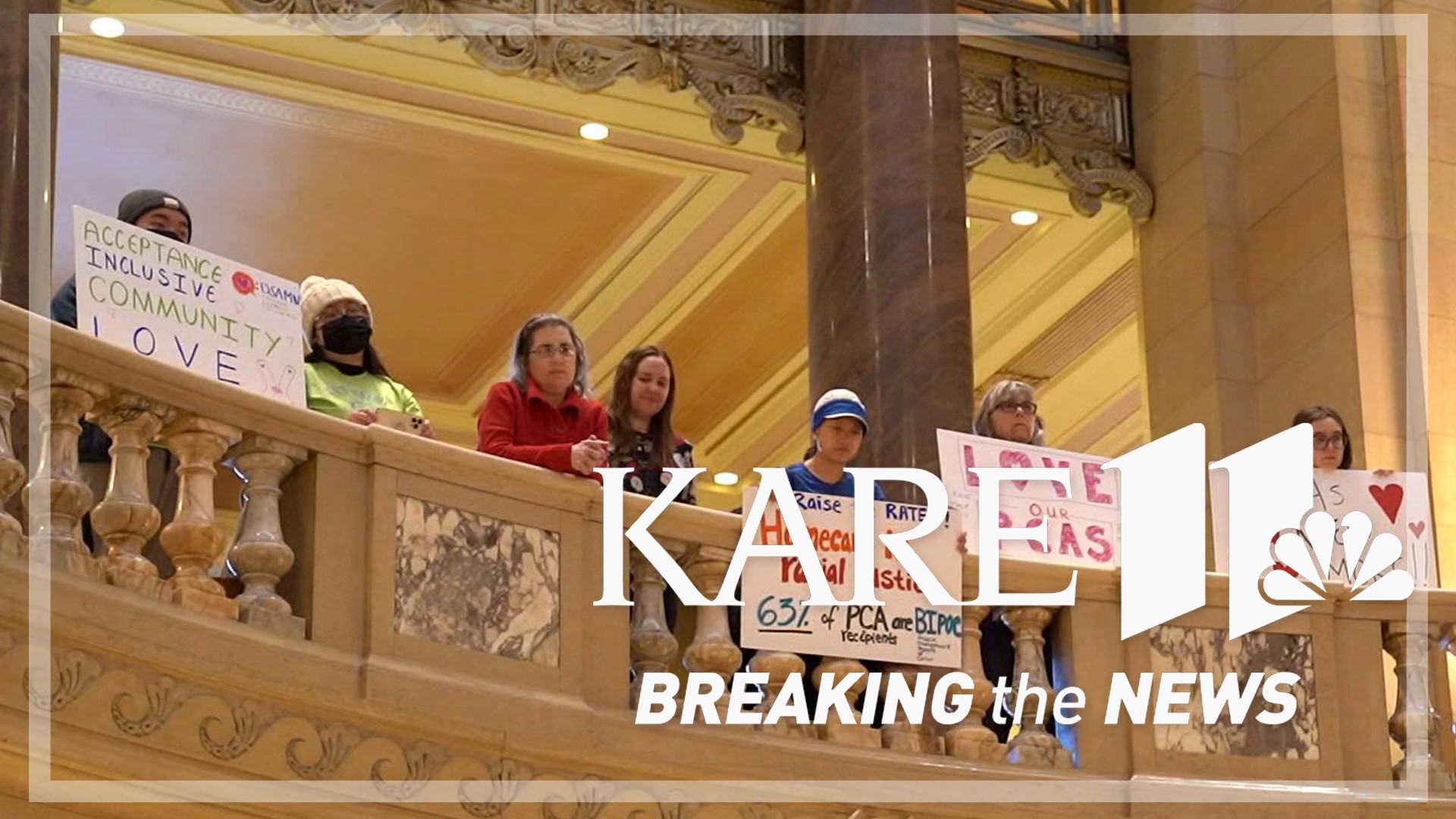ST PAUL, Minn. — Nikki Villavicencio chairs the Minnesota Council on Disability but she's no stranger to the state capitol. She's been wheeling around this place for more than a decade advocating for changes that can make it easier for persons like herself to live independently.
She gets around in a motorized wheelchair, uses her head to push the elevator buttons and her feet to text people on her smartphone. And she's a tireless advocate in the drive for equity and inclusion.
"If we lift up the marginalized people, the rest of the world will be better," Villavicencio told KARE 11 Tuesday.
"It's not like, 'Oh, those people over there, they need special things.' It's not about that."
This year's Disability Advocacy Day rally fell on Valentine's Day, which may have had something to do with the theme of this year's event, "Love. Liberation. Belonging."
Many of the budget and policy bills pending at the capitol present opportunities to improve the lives of persons living with disabilities. The state's $17 billion dollar projected surplus for FY2024-2025 has sparked hope among advocates.
Sen. John Hoffman of Champlin told the Rotunda crowd at least $1.8 billion of the surplus should've gone to bolster services used by persons with disabilities last year, but those deals fells apart in a divided legislature.
"We love you, Governor. Listen to us! That's what you should be saying to the governor."
One measure would help close a loophole that forces workers with disabilities to spend most of their savings to qualify for government-subsidized services.
"It forces them to live in poverty because they have to spend down the money they make, so they can still get their services to live their everyday life," Villavicencio explained.
"It creates a situation where folks with disabilities aren't ever able to retire because they still need the care they need."
Another bill would allow Personal Care Assistants, or PCAs, to be paid while they're transporting clients from one place to another.
"They have to technically go off the clock to be able to drive their clients and then just pretend they’re friends for those few minutes and not get paid. And then they clock back in, because it’s a liability and it’s not a Medicaid-covered service."
Villavicencio, who is also an elected member of the Maplewood City Council, said it was good to be back in rally mode with fellow advocates and consumers of disability services.
"Being disabled in any community can be very isolating and adding all the strain of COVID and the shortage of workers and the care we all need has made us feel lonely. And so, coming together today at the capitol just felt so great!"
She met her partner Darrell Paulsen at a disability rights rally at the capitol 14 years ago and 10 years ago they had a daughter. That experience has turned them into advocates for the parenting with disabilities movement.
Paulsen, a longtime advocate for transportation accessibility, helped organize the first disability rights rally at the capitol back in 1992. In recent years he has supported the adult cannabis bill, which would legalize recreational marijuana.
He uses medical cannabis to help control the muscle spasms he suffers as a result of his cerebral palsy and believes the prices of those drugs will drop if adult cannabis becomes legal in Minnesota.
"I’m able to sit in my wheelchair about 18 hours a day because I use cannabis all day long. The recreational adult cannabis side should subsidize the medical side, and it will give us medical marijuana cheaper and almost free at some point."

